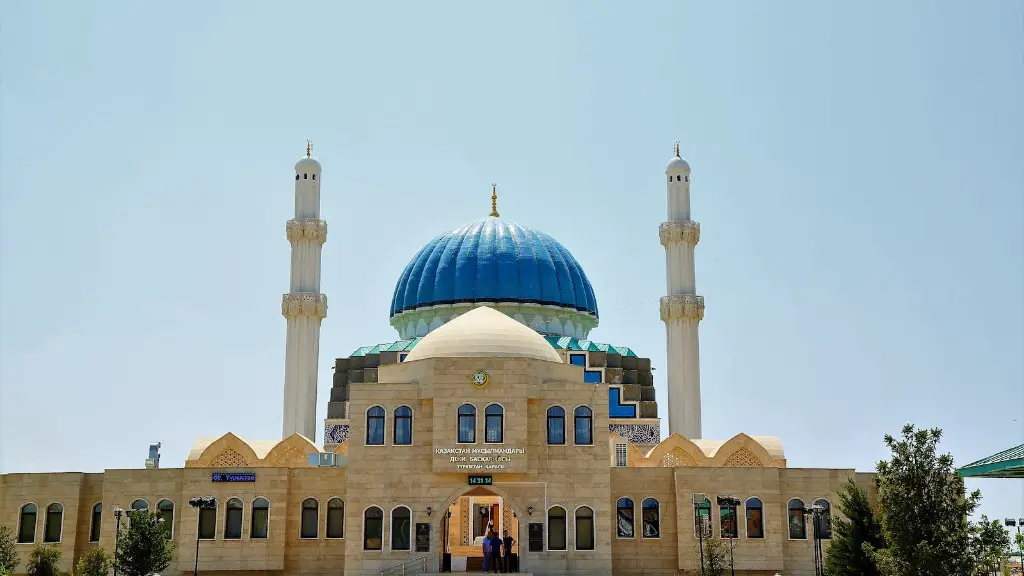When it comes to food, Muslims have specific dietary restrictions. In Islam, halal refers to anything that is permissible. This includes food and drinks, as well as other actions.
Halal is an Arabic word that means “permissible.” In Islam, halal refers to anything that is permissible according to Islamic law. This includes food, drink, clothing, and other items. It also includes actions and behaviors that are permissible.
What does halal means in Islam?
The term “permissibleHalal” refers to food that adheres to Islamic law, as defined in the Koran. The Islamic form of slaughtering animals or poultry, dhabiha, involves killing through a cut to the jugular vein, carotid artery and windpipe. This method of slaughter is considered to be more humane than other methods, and as such, is the only form of slaughter that is permissible under Islamic law.
The word halal is often used in reference to food and drink, but it can also apply to other things like cosmetics, medications, and financial transactions.
What kind of food is halal
Halal food is prepared and handled according to Islamic Sharia law, as interpreted in the Quran. In general, halal food does not contain pork or alcohol and does not mix haram products. Here are some types of halal food: Fruit, Vegetables, Fish, Chicken, Lamb, Beef, Duck, Eggs.
By Islamic law, all foods are considered halal, or lawful, except for pork and its by-products, animals improperly slaughtered or dead before slaughtering, animals slaughtered in the name of anyone but Allah (God), carnivorous animals, birds of prey, animals without external ears (some birds and reptiles), blood, .
What is halal vs kosher?
There are a few things to note about certified kosher and certified halal foods. First, these foods have been prepared in accordance with traditional Jewish or Islamic law, respectively. This means that they are held to a higher standard in terms of cleanliness and purity. Second, certified kosher and certified halal foods are usually more expensive than other food options because of the extra care that goes into their preparation. Finally, certified kosher and certified halal foods are usually only available at specialty stores or online retailers.
Chocolate is a plant-derived food item or ingredient and is generally considered halal. However, the source of the food item is not the only criteria because halal also depends on cleanliness. For a specific brand to pass the halal certification, it has to go through a proper assessment by authorities.
Why do Muslims prefer halal?
Muslims choose to eat halal food because it meets requirements that they believe make it suitable for consumption. Halal originates from rules set out in the Qur’an and the Hadith (the Prophet Muhammad’s example), which have been followed throughout generations of Islamic practice. Halal food is prepared in a specific way and is free from certain contaminants. For Muslims, eating halal is a way of showing devotion to Allah and following His rules.
It is important to be aware of what goes into our food, and this is especially true when it comes to meat. Halal meat is free from antibiotics, growth hormones, and preservatives, all of which can adversely affect our health. Animals killed using non-halal methods might contain e-coli poisoning, bacteria, and other harmful and filthy substances. For these reasons, it is best to opt for halal meat whenever possible.
Does halal meat taste different
There is no real difference in taste between halal and regular meat. Halal meat is just as delicious and clean tasting as regular meat. The only thing that might be different is the gamey taste, which is usually an issue with regular meat. That’s why it’s recommended to buy halal meat online from a vendor you can trust.
The food substances that are forbidden according to Islamic dietary laws are alcohol, pork, carrion, the meat of carnivores and animals that died due to illness, injury, stunning, poisoning, or slaughtering not in the name of God. Islam prohibits the consumption of these substances as they are considered to be harmful to the body and soul.
What is halal in McDonald’s?
Yes, McDonald’s is halal. All of their food is 100% halal and they have a halal certificate to prove it. You can view the certificate on their website.
Yes, eggs from chicken, turkey, ostrich, fish, quail and other eggs from birds that are not a bird of prey are considered halal, it is perfectly safe for Muslims to consume.
What is not allowed halal
Food products that are considered Haram (forbidden) include pork and its by-products, animals with fangs, Halal animals improperly slaughtered, lard, alcoholic drinks and foods contaminated with the aforementioned.
Pork is forbidden for Muslims because it is one of the foods declared haram, or forbidden, in the Holy Quran. While some foods are allowed in the Quran, others are specifically forbidden, and pork is one of those forbidden foods.
Can halal have dairy?
Islamic dietary law requires that dairy, yogurt, and cheese be produced from halal-certified animals only. This means that the animals must be raised and slaughtered according to Islamic Law. Additionally, any products that contain L-cysteine (animal hair) must be avoided.
It is important to note that for many Muslim buyers, non-alcoholic kosher food products are considered halal. This means that Muslim buyers can consume kosher products without any issue, while Jewish buyers cannot do likewise with halal products. This is due to the fact that alcohol is not permissible in Islam, and thus any products that contain alcohol would not be considered halal.
Final Words
Halal is an Arabic word that means permitted or lawful. In Islam, it is used to describe things that are allowed to be consumed or used.
Halal is an Arabic word that means “permissible”. In Islam, it is used to refer to anything that is allowed by Islamic law. This includes food and drink, as well as other things such as clothing, hygiene, and financial matters.
